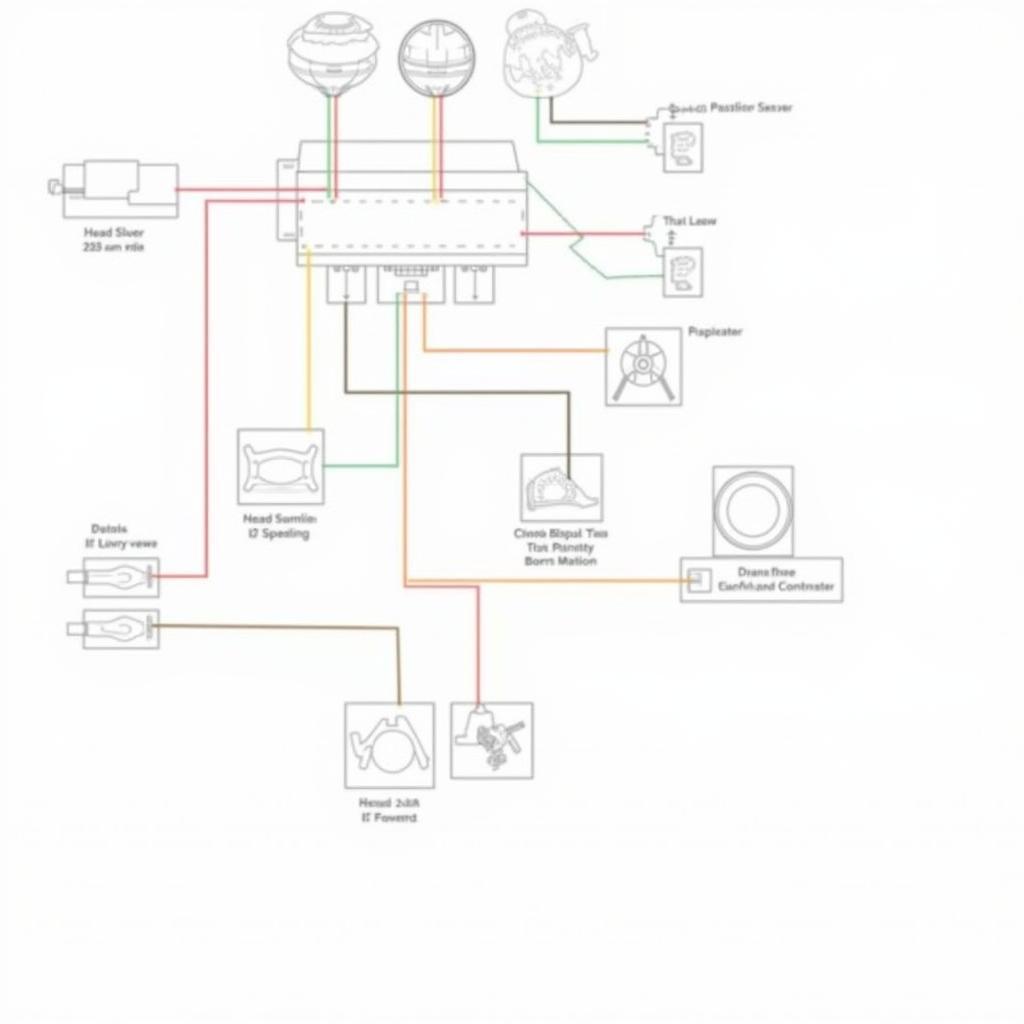The BMW E36, a classic beloved by enthusiasts, often comes with a stock audio system that leaves much to be desired. This article dives deep into the intricacies of the bmw e36 stock audio, exploring its common issues, potential upgrades, and how to achieve that perfect sound in your vintage ride. Aftermarket upgrades are definitely an option but let’s first look at what you’re working with.
Understanding the E36’s Original Sound System
The stock audio system in the E36 varied depending on the model year and optional packages. Generally, it consisted of a head unit, speakers in the front doors and rear deck, and sometimes an amplifier. Early models often featured cassette players, while later ones transitioned to CD players. The quality of these components, however, was often considered basic, lacking the clarity and punch that many drivers desire. Knowing what you have is the first step in making it better. Do you have the premium sound system or the base model?
If you are interested in upgrading your BMW E36 stock audio, consider some of the upgrade options available. You might find what you are looking for on our page about bmw e36 stock audio upgrade.
Common Issues with the BMW E36 Stock Audio
Over time, the components of the bmw e36 stock audio system can degrade, leading to various problems. Speakers can blow, wiring can become frayed, and the head unit itself can malfunction. One common complaint is the weak bass response, while others experience distorted sound or crackling noises. These issues can detract from the driving experience and leave you craving a richer, more immersive audio experience.
Are you looking to improve your overall car audio system? Our article on how to make your bmw sound better offers comprehensive advice.
Diagnosing Problems with Your E36 Sound System
Troubleshooting your bmw e36 stock audio system often involves checking the wiring, testing the speakers, and examining the head unit. A multimeter can be helpful in identifying breaks in the wiring or blown speakers. If the head unit is the culprit, you might consider replacing it with an aftermarket option that offers modern features and improved sound quality.
How to test your E36 speakers?
A simple way to test your speakers is to use a multimeter to check for continuity. If the multimeter reads infinite resistance, the speaker is likely blown.
Expert Insight: “Diagnosing audio problems often requires a systematic approach, starting with the simplest checks and moving to more complex ones,” says automotive electrical engineer, David Miller, of CARDIAGTECH.
 BMW E36 Speaker Wiring Diagram
BMW E36 Speaker Wiring Diagram
Upgrading Your E36’s Audio: A World of Possibilities
Upgrading your bmw e36 stock audio doesn’t have to be a daunting task. Numerous aftermarket options are available, ranging from simple speaker replacements to complete system overhauls. You can choose components that match your budget and desired sound quality, whether you prefer a crisp, clean sound or a booming bass response.
What are the best speaker upgrades for an E36?
Component speakers are often recommended for their superior sound quality compared to coaxial speakers. They separate the tweeter and woofer, allowing for more precise sound staging. Looking for inspiration? Check out our article on the 1999 bmw e36 sound system for specific examples.
Maintaining Your Upgraded Audio System
Once you’ve upgraded your bmw e36 stock audio, proper maintenance is essential to ensure its longevity. Protecting your wiring, avoiding excessive volume levels, and cleaning your speakers regularly can help prevent premature wear and tear.
Expert Insight: “Investing in quality wiring and proper installation is just as important as choosing the right components,” advises Sarah Chen, Lead Technician at CARDIAGTECH. “It ensures optimal performance and prevents future problems.”
Conclusion
The bmw e36 stock audio system, while functional, often leaves room for improvement. By understanding its limitations and exploring the various upgrade options, you can transform your E36’s audio experience into something truly special. Whether you choose simple speaker replacements or a complete system overhaul, remember to prioritize quality components and proper installation to ensure a long-lasting and enjoyable listening experience.
FAQ
- What are the most common problems with the E36 stock audio system? Common problems include blown speakers, frayed wiring, and malfunctioning head units.
- How can I diagnose problems with my E36’s audio system? You can use a multimeter to check wiring and speakers, and examine the head unit for any obvious issues.
- What are some good speaker upgrade options for the E36? Component speakers are often recommended for their superior sound quality.
- How can I maintain my upgraded audio system? Protect your wiring, avoid excessive volume, and clean your speakers regularly.
- Where can I find more information on upgrading my BMW’s audio? Check out our article on bmw f30 standard audio system for more ideas.
- What is the typical cost to upgrade an E36 sound system? Costs can vary significantly based on the components chosen, ranging from under $100 for simple speaker replacements to over $1000 for a full system overhaul.
- Can I install an aftermarket head unit in my E36? Yes, numerous aftermarket head units are compatible with the E36.
Common Scenarios and Questions:
- Scenario: My E36’s speakers are crackling. Question: Are the speakers blown, or is it a wiring issue?
- Scenario: I want to add a subwoofer to my E36. Question: Do I need an amplifier, and how do I wire it?
- Scenario: My E36’s head unit doesn’t work. Question: Should I repair it or replace it with an aftermarket unit?
Further Reading:
For more information on improving your BMW’s sound, explore our article on 2011 bmw 335i exhaust sound.
Need expert assistance with your BMW E36’s audio system? Contact us via Whatsapp: +1 (641) 206-8880, Email: CARDIAGTECH[email protected] or visit us at 276 Reock St, City of Orange, NJ 07050, United States. Our customer service team is available 24/7.
